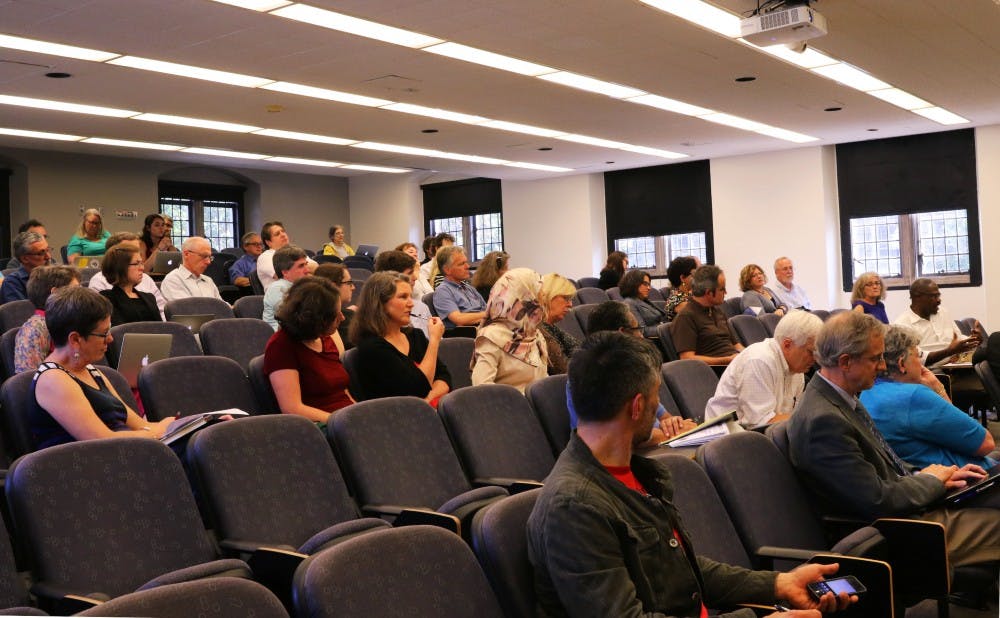As Duke continues to trumpet its commitment to working across disciplines, some faculty are calling into question the role of interdisciplinary certificate programs.
The Trinity College of Arts and Sciences defines a certificate as a program that "spans multiple disciplines or departments"—one of the factors that separates it from a minor, which is focused in a specific department. Trinity currently offers 19 certificates, and the Arts and Sciences Council voted Thursday to add one more in sustainability engagement. But some faculty at the meeting expressed concerns regarding how certificate programs are managed.
The new sustainability engagement program approved Thursday is an experiential certificate, also known as a "certificate 2.0." Instead of requiring six courses, certificates under this classification require four courses and two "experiences," such as DukeEngage or an internship.
A number of professors voiced concerns that this system pushes Duke further toward "credentialism"—noting that it creates an environment in which students feel they should be given a credential for every experience they have, rather than encouraging students to pursue learning.
Omid Safi, director of the Islamic Studies Center, described the issue as one of "confusing depth and breadth of an education with the number of boxes" on a transcript.
Although the "experiences" count toward the certificate, they do not count for course credit, said Lee Baker, dean of academic affairs and associate vice provost for undergraduate education.
The sustainability engagement certificate—designed to give students "experience, skills and knowledge necessary to address complex sustainability issues"—sparked similar debate when it was initially proposed at the council's September meeting. Ultimately, it passed by a vote of 21 to six, with two abstentions.
In other business:
A certificate program in human rights—likely hosted by the the Franklin Humanities Institute—was also proposed at the meeting.
Several faculty expressed appreciation for the proposed certificate's "structured reflection piece"—which requires students to reflect on their decision to participate in the program as they enter it and also as they finish.
Currently, not many certificate programs require reflection entries from students—including the markets and management studies certificate, which is by far the largest, according to Baker.
"They have no idea why they're doing it, if you sit down and ask them why they're doing it—'my friends are doing it,' 'my parents said since we don't have a business degree, I should do it,'" said Robert Korstad, professor of public policy and history.
The council approved a change in the bylaws regarding the course committee, which reviews and approves new Trinity courses. The committee will now have 10 members instead of seven—adding three additional representatives, one each from the social sciences, natural sciences and humanities. The committee's workload is significant enough to require the additional members, said Anita Layton, chair of the Arts and Sciences Council and Robert R. and Katherine B. Penn associate professor of mathematics.
The council also approved a change in how academic units are granted representation in the council. Currently, representation is determined by the executive committee. An academic unit—a department, program or institute—must either have regular-rank faculty or make "substantial contributions to undergraduate education" in order for the executive committee to give the unit representation in the council. The council voted to move the power to grant representation from the executive committee to the council itself, with a two-thirds vote needed.
Get The Chronicle straight to your inbox
Signup for our weekly newsletter. Cancel at any time.

